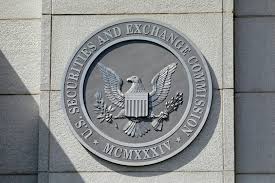An unreported element that the regulator discovered ensured larger remuneration for the influencer as the fund grew: the influencer’s fee was linked to the fund’s development.
VanEck Associates Corporation has agreed to pay a punishment of $1.75 million to settle charges brought against it by the Securities and Exchange Commission (SEC) related to the introduction of an exchange-traded fund (ETF) with a social media focus in 2021.
The investment adviser was hit with a civil fine by the US Securities and Exchange Commission. The SEC said in a statement on February 16 that VanEck failed to adequately disclose that a well-known social media celebrity was involved in the product’s promotion when the VanEck Social Sentiment ETF was launched in March 2021.
The ETF used “positive insights” from social media and other data sources to track an index. But the SEC found that VanEck worked with a powerful and contentious online personality to increase the fund’s appeal in an attempt to increase its success on social media.
Reports from 2021 have previously linked Barstool Sports founder David Portnoy to the promotion of the VanEck ETF, even though the financial watchdog did not specifically name the influencer. The influencer’s fee was linked to the fund’s growth, ensuring higher remuneration as the fund increased, an undisclosed element that the regulator discovered.
The concealed arrangement was criticised by the SEC, with particular attention paid to VanEck’s neglect to notify the ETF’s board about the influencer’s anticipated involvement.
The board’s obligation to supervise financial matters during advisory contract discussions was broken by this secret arrangement, which had substantial effects on the management contract and fund operations
.Co-chief of the Asset Management Unit of the SEC Enforcement Division Andrew Dean emphasised the need of adviser openness. He pointed out that the board’s capacity to evaluate the consulting contract fairly and comprehend the financial implications of licencing agreements is hampered by the inaccurate disclosures made.
By consenting to the SEC’s decision, VanEck acknowledged that it had broken both the Investment Company Act and the Investment Advisers Act. Without acknowledging or contesting the findings, the corporation accepted a cease-and-desist order, censure, and the necessary financial penalty.
The move comes after a comprehensive performance review by the company led to the decision to discontinue one of its ETF products, the Bitcoin Strategy ETF, a month ago. Van Eck said on February 15 that it was cutting its fees from 0.25% to 0.20% as of February 21. This move seems to be an attempt to increase the popularity of its dedicated Bitcoin ETF, which is denoted by the ticker HODL.


